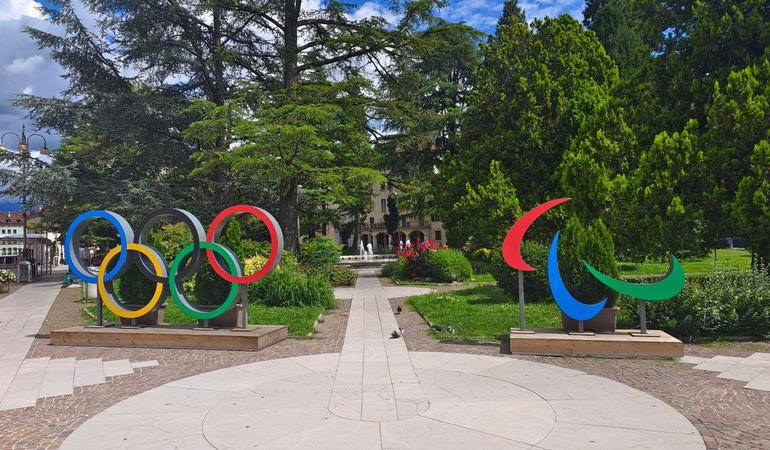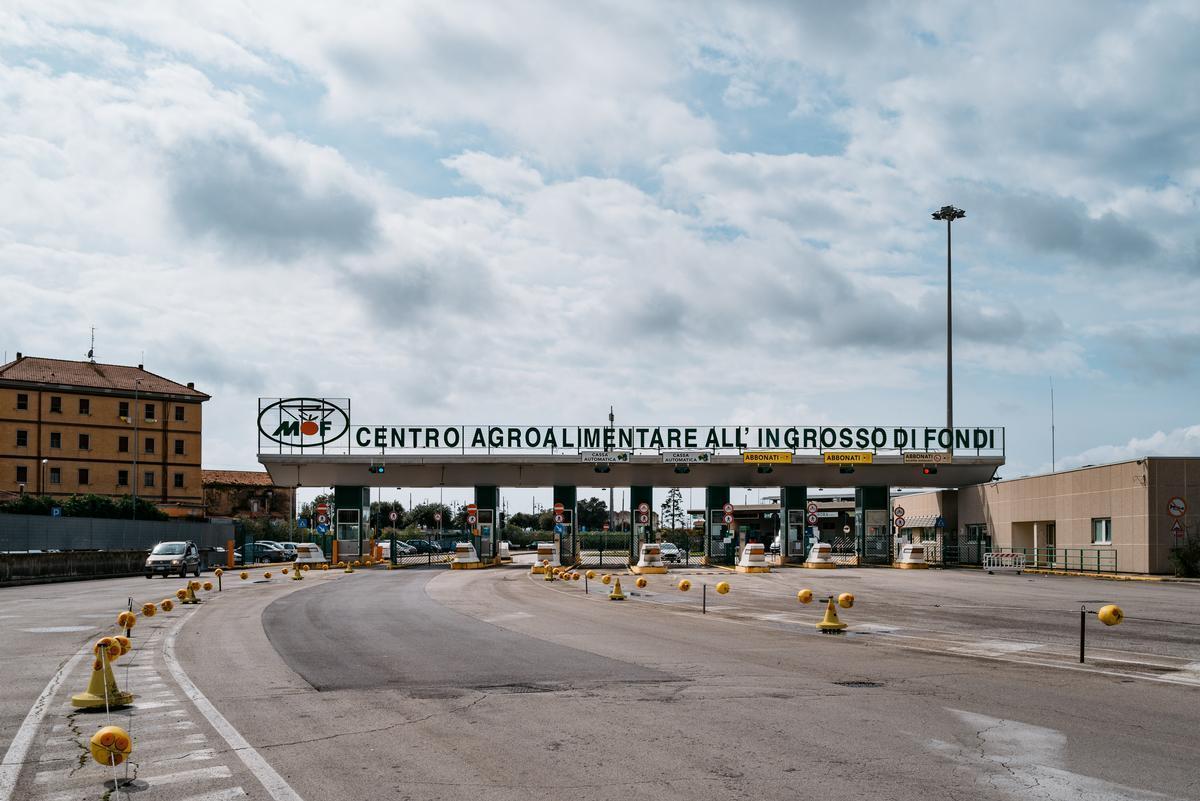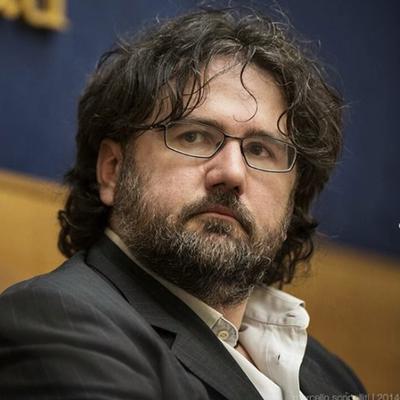
Milano-Cortina. Ecco come verranno spesi i 450 milioni di euro delle paralimpiadi



12 luglio 2024
Reflecting on the mafias in the province of Latina means dealing with a complex web of stories and characters belonging to different clans, united in a broad criminal network that has allowed them to develop business, relationships and in some cases even extraordinary political careers. These are associates of the 'ndrangheta, the Sicilian mafia, the Camorre, who coordinate and act in an innovative and unscrupulous manner, responsible, among other things, for the formation of very dangerous indigenous mafia organisations such as, for example, the Casamonica-Di Silvio clan or the no less brutal and unscrupulous Ciarelli clan. But there is also an Indian para-Mafia organisation that governs, through fake leaders, the system of international trafficking, "caporalato" (that is the illegal recruitmenet of workers and their exploitation) and much of the services that members of the often severely exploited community need.
The fight against transnational organized crime, an urgent matter
"The co-presence on that territory of a patchwork of groups has profoundly marked its economic-social and even political fabric," explained Rome's attorney general, Giovanni Salvi, at the inauguration of the 2019 judicial year. In 2020, the Antimafia investigative division (Dia) then noted that 'South Pontine is characterised by the presence of characters linked to various criminal groups, for example exponents of the Calabrian 'ndrine of Bellocco, Tripodo, Alvaro and La Rosa-Garruzzo. Over time, projections of the Aquino-Coluccio di Marina di Gioiosa Jonica and Commisso di Siderno cosche from Reggio Calabria have been found to be operating. Confirmation of the actual involvement of subjects of Calabrian matrix in the drug trafficking conducted in the Pontine area came with the operation Selfie of May 2019'. Moreover, 'elements of the Casalesi and Bidognetti clans are active. Then Bardellino, Moccia, Mallardo, Giuliano. Also Licciardi, Senese and Zaza. For the Campania gangs, given the geographical contiguity, the south of Pontino constitutes the natural 'area of delocalisation'. Money laundering and reuse of capital are practised in the construction and trade sectors. With resources invested above all in the agri-food and catering circuit, as well as in the acquisition and management of gaming halls'.
In April 1982, for example, Francesco Paolo Coppola (known as Frank Three Fingers), a leading figure of the Sicilian mafia who had emigrated to the United States and was expelled in 1948, died in a clinic in Aprilia. While between Anzio and Nettuno, the 'ndrina dei Gallace di Guardavalle was already operating and in Aprilia that of the Alvaro di Sinopoli, owners of a farm of about a thousand hectares. Long-standing presences underestimated by many, including some institutional representatives who defined the investigators trying to shed light on these affairs as 'deviated pieces of the State'. A statement that contributed to one of the country's greatest defeats as far as the fight against the mafia is concerned, namely the failure to dissolve the municipal administration of Fondi due to mafia influence on its municipal council, made by the then Prefect of Latina, Bruno Frattasi, who rightly considered that there were 'forms of interference by organised crime such as to compromise the smooth running of the administration, with serious and lasting prejudice to the state of public order and safety'. The same objective was declared twice by the Minister of the Interior Roberto Maroni, but between September 2008 and October 2009, the Council of Ministers in office (Berlusconi 4) did not approve this decision. The entire municipal council resigned the day before the government's vote, avoiding commissioning.
'Ndrangheta, local roots and global opportunities
Mafias must not only be known and acknowledged. They must be radically fought through a new, fundamental alliance between anti-mafia associations, the best expressions of the institutions, the public prosecutor's office, the police, trade unions and the business world. An unavoidable civic alliance as a curb to the spread of their presence, violence, corruption, unscrupulous profiteering often conducted with the complicity of public administrations. The beginnings of this virtuous social action can be recalled in the anti-Mafia demonstration of 27 January 1990, when over three thousand high school students took to the streets of Formia against the Camorra, displaying a banner bearing the inscription 'Cowardly camorrists come out of the dark'.
Also fundamental was the strike organised in Latina, in Piazza della Libertà, on 18 April 2016 by Flai CGIL and the cooperative In Migrazione, with the participation of more than five thousand men and women workers of Indian origin employed as labourers, who denounced an agromafioso system based on trafficking, forced labour and exploitation. The latter was one of the most important strikes ever organised in Italy. It made it possible to launch investigations and arrest "corporals" and criminal entrepreneurs who had been reducing hundreds of labourers, Italians and immigrants, women and men, to conditions of severe exploitation for years. Among the various operations it is possible to recall the one in October 2019 in the countryside of Borgo Hermada, which culminated with the arrest of an Italian agricultural entrepreneur who threatened Indian workers by pointing sawed-off shotguns at their heads. This is how the Pontine agromafias – which, according to Eurispes, develop about EUR 24.5 billion a year in Italy – show their truest face. Some of these workers, forced to work up to 14 hours a day, almost every day of the month, are induced to take doping substances such as methamphetamines and opium to cope with the infernal rhythms. A business that is also taking heroin, with even more intense links to the Camorra and the 'ndrangheta.
The mafias in the province of Latina are therefore not sporadically present and are not just businessmen. They have been able to attack mayors and administrations with breathtaking ease. They have also killed, as demonstrated by the brutal murder of Don Cesare Boschin, the parish priest of the Borgo Montello rectory who was found mangled on 30 March 1995. A death that still cries out for truth and justice today. Don Boschin was fighting against the Borgo Montello poison dump, near which the Schiavone family, founders of the Casalesi clan, lived to preside over their dirty business.
We should also remember what happened in and around the Mof, the fruit and vegetable market in Fondi (read the article). One case above all concerns the involvement on behalf of the State of the accountant Massimo Elesio Giordano, appointed in September 2018 as judicial administrator of La Suprema, the transport company of Giuseppe D'Alterio, known as Peppe o' Marocchino. Giordano, correctly, contacted some local operators to run the company under seizure, but after just four months he had to give up. In February 2019, in fact, the only carrier that had agreed to collaborate, communicated that the conditions for continuing that relationship had ceased to exist. An afterthought due, according to the investigators, to D'Alterio's heavy conditioning. Peppe o' Marocchino has been caught several times in past years transporting drugs together with fruit and vegetables, confirming that road transport is one of the main systems of drug importation from Spain through the province of Latina.
For all these reasons, every commitment, social, investigative and judicial action, enquiry that competently and courageously seeks truth and justice against all forms of mafia and criminality is as necessary and welcome as ever. Against mafias, everywhere and therefore also in the province of Latina, one must fight and one can win. It is only up to all of us to decide when.
La tua donazione ci servirà a mantenere il sito accessibile a tutti
Riformata. Così il governo vorrebbe la magistratura, ma l'obiettivo è solo limitarne il potere
La tua donazione ci servirà a mantenere il sito accessibile a tutti